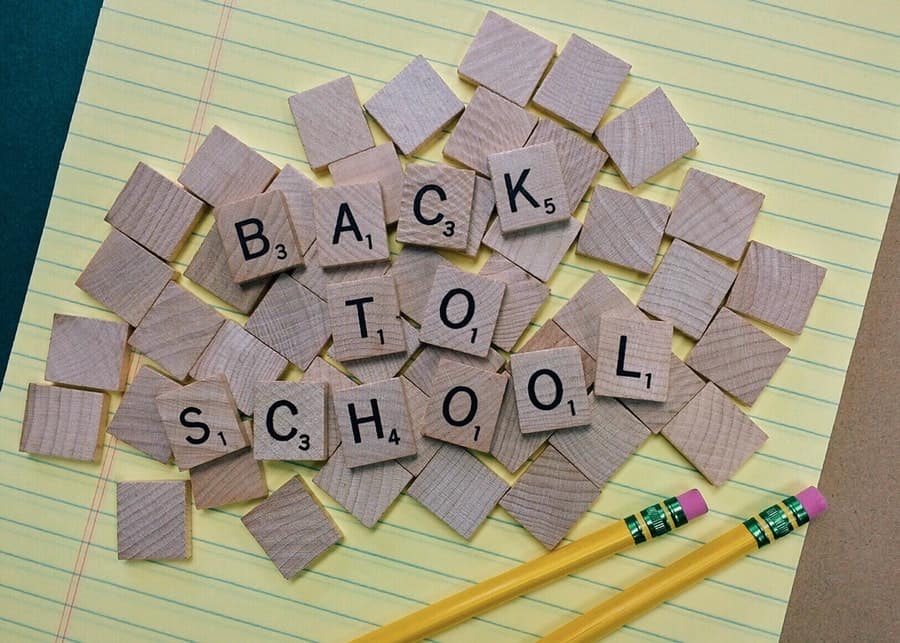Changing School – How to make a smooth transition

Whether in the same city you currently live or in another country, changing school can be incredibly exciting, but also nerve-wracking and quite emotional. There are so many unknowns: How will my child cope with seeing old friends less, and making new ones? Will their new teachers be supportive of their individual struggles? How am I going to keep it all together?!
Drawing on our years of collective experience of easing academic transitions at TutorsPlus, here are some elements to consider so you and the whole family feel better prepared for the big move.
Before changing school
Share feelings as a family
Openly discuss your expectations, hopes and fears as a family, and emphasise to your child that it’s normal to have feelings of doubt as well as excitement! Being honest about your own feelings reminds children they’re not alone, and that their own perspective is part of a larger family dynamic. However, if you have any concerns about your child, try to keep these to yourself and focus instead on being constructive and optimistic about their ability to overcome their fears and doubts.
Make as many decisions as possible together with your child. Visit the different school options together and consider your child’s opinion in the choice. If there are elective subjects, make sure your child has their input. It’s important that your child feels as much ownership and control over their new surroundings as possible as will set them up to be more responsible for and committed to their new life.
If you’re moving country, make sure the whole family has an opportunity to say goodbye to friends, favourite locations and anyone or anything that has been special. As a family, talk about what you’re grateful for in the time you’ve had to get to know the place. Saying goodbye allows space for new beginnings.
Prepare the learning transition
As soon as you have decided upon a school, prepare any extra tuition ahead of time, even while you’re still at your current school. Get full reports and feedback from your child’s teachers about where they’re at academically and socially. What skills or topics haven’t they mastered yet? What skills or competencies does the new school expect your child to have upon entering the academic year? Will your child need to learn a new language? Even if your child is moving from one programme to another on the same school campus it is incredibly worthwhile finding out if there are gaps ahead of time. Our most common requests are for Maths, Sciences and Languages and we find that students who receive support ahead of time often slip into their new academic programme much easier when changing school.
Be honest
Be honest about your child’s needs. It is rare to find a school who won’t make it their priority to fully support your child as they enter a new environment. Schools have all sorts of support systems in place: homework groups, buddy systems, counsellors, intensive language learning classes, learning assistants, gifted programmes – the list goes on. A school can only help a smooth transition when they know if your child has some gaps to fill in a particular subject area or skill or even if your child needs a bit of extra emotional support due to difficulty handling the move. Letting your new school know early on about suspected or confirmed special education needs will also help teachers and management prepare without delay to observe and put into action the various systems they have in place to support your child academically and socially.
If you’re moving to a country where you don’t speak the language, try and organise classes in advance to give yourselves a head start. A family group on Duolingo can be a fun way to “compete” against each other with your language progress. Sharing your funny stories about language “fails” can help counter the often frustrating and debilitating feelings of those early days learning a new language.
Draw on the resources of the new school
Alert the school as early as possible to any important allergies, disabilities or special learning needs that your child has. They need time to consult with staff and services to make sure that they will offer the best support possible for your child. They’ll also then be able to inform you on any school, or even national, policies that may be different to where you’ve moved from.
If you’re on Facebook, ask the school or PTA/PTO for the names of recommended local groups that can support you when changing school. If you aren’t on Facebook, don’t hesitate to ask others, like the PTA/PTO, to make a request on your behalf! Whether it’s for information, bureaucracy, sports groups, language learning, making new friends, help in the case of emergency – these groups are minefields of information and support.
After changing school
Prioritise relationships with friends and family
Set idealistic expectations of each other. Talk about how things might be tough for a few months, and even the first year. Be aware that everyone in the family might act a little differently as each person adjusts to the change. Don’t be surprised if your child wants to sleep more, goes through a moment of being quieter than usual, or experiences days/weeks of huge excitement followed by sadness and loneliness.
If there are any family traditions or rituals that you’ve let slide, make an effort to bring them back in your new home! Or create some new ones that your family can look forward to and feel stabilised by in those first few months of radical adjustment.
If you’ve moved time zones, figure out together as a family what the best time is to chat with friends and family you’ve left behind, and try to make sure that precious time doesn’t get filled with other commitments. This isn’t always an easy one – as getting enough sleep is also important! But be prepared to relax the rules a little at first and be more flexible and creative! When I was suffering a particularly lonely period after a move to a new country, my partner offered to message me every day at 3pm “Have you called a friend today?”, as that was the time I had discovered my friends back home were most likely available.
Depending on your child’s age and what works with your family, find ways to capitalise on the benefits of social media to keep in touch with friends and relatives.
Before the first day of changing school
If the school doesn’t offer an orientation day, request one, so that you and your child can meet the teachers and get to know where important things are located – like lockers, the cafeteria, the office to go to for help, the library, and the bathrooms! Ask the school to explain their grading scale and their attitude to homework. There’s always too much new information on the first day so try spread it out. It also gives you and your child a chance to share any concerns ahead of time… before all students arrive!
Find out how to get to school, whether there are any safety concerns you should be aware of regarding walking or cycling to school or when taking public transport. Inquire about the reliability of trains and buses as well as how the ticketing system works. Do a trial run!
Make sure you have the names and contact details of your child’s teachers, the principal and the school nurse. Also, ask what the country’s emergency phone numbers are and keep these in a visible place.
Find the communication portals
Every school has a different way of communicating with parents. Find out if you are responsible for regularly visiting the online calendar or portal, if the school sends regular updates via email or SMS, or if important information will come home in paper form with your child. In the latter case, be sure to comb your child’s backpack every evening those first few weeks as – even in the rare case they are miracle children who always remember to pass the info on! – there will be guaranteed information overload at the beginning of term.
Getting up early for the first day is rough! Practice getting back into a sleep pattern that fits the school time rhythm a week or two in advance of the first day back.
Those first weeks after changing school
Organise any loose handouts with contact phone numbers, names or important websites in a place you can find easily when you need them. If you’re still unpacking boxes, make sure there’s at least one corner dedicated to filing/organising all the new information about the new school and your new home. Visit the websites, links and portals the school gives you and bookmark them. You’ll inevitably need to contact someone quickly at some point got more information and you’ll be glad not to have to waste time tidying the house (or moving unpacked boxes around!) just for that phone number or email address.
If your child is not the most reliable at handing you any paper-based information – make sure you go through their bag with them every evening, especially the first few weeks of class. There’ll probably be more information than either of you know how to handle! So make a ritual of it. It’s never too early to practice being organised.
Without overloading their schedule, get your child involved outside the classroom. Do they want to continue old activities and/or try something new? Identities and tastes are often shifting – your child might be excited to take advantage of the opportunity to redefine themselves by exploring new interests.
Ask for advice
Search for ways you can network and connect either by asking advice from your new employers, or the school or PTA/PTO. In as much as possible, get involved with the PTA or PTO. It will help you learn more about the school, meet people who could become new friends, and increase your knowledge of the community and what resources are available to make your transition smoother. Not only that, but if you’re not working for the moment, it can give you the opportunity to put your skills, talents and time towards the school community – great for the school and great for you, as we all feel better when we feel we’re contributing to something worthwhile.
Keep an eye out for early indications of your child struggling academically. More often than not just a few sessions with a tutor can help overcome a small block before it turns into a larger issue. In our experience, once a child loses confidence in a subject, it takes much more time to unblock the barrier to understanding and learning.
If you’re preparing changing school this year, we wish you and your family all the very, very best! If you’re considering tuition, it would be a pleasure to match your child with an experienced, personalised tutor who can help support their transition to a new programme or school. You can reach TutorsPlus at 022 731 8148 or in**@********us.com
 Submitted by Sandra Steiger.
Submitted by Sandra Steiger.
Sandra Steiger has over 10 years’ experience teaching English at various schools in Switzerland. She now works as Academic Support Manager at TutorsPlus. During her 6 years at the International School of Geneva, she was also the Service Learning programme Coordinator, International Award Supervisor, a Homeroom Mentor and Head of Year 8.
